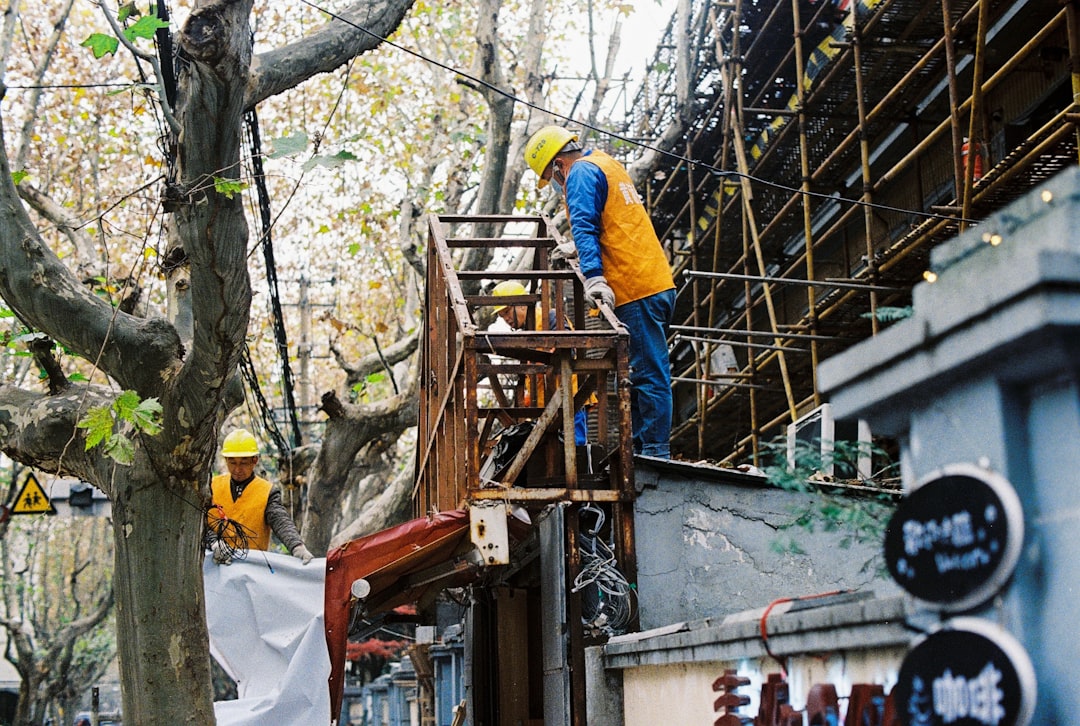Cost to Plant a Tree for Construction Professionals
Price source: Costs shown are derived from our proprietary U.S. construction cost database (updated continuously from contractor/bid/pricing inputs and normalization rules).
Eva Steinmetzer-Shaw
Head of Marketing
Understanding the Real Cost to Plant a Tree in Residential Construction
Incorporating trees into construction projects requires careful planning and precise cost estimation. In Los Angeles, costs range from $400 – $1,300 per tree based on multiple factors such as tree size, species, site accessibility, and local regulations. These factors emphasize the importance of accurate estimations, especially in a professional setting where adhering to budgets is critical. This guide provides insights into managing and predicting costs with AI-driven tools for streamlined planning.
Key Cost Drivers in Tree Planting
1. Tree Size and Species
- 5-gallon saplings: $50 – $150, including installation
- 36-inch box specimens: Costs can exceed $1,500 – $3,000 before labor
- Drought-tolerant species offer long-term savings
2. Site Accessibility
- Urban projects may require crane services
- Suburban sites can benefit from skid-steer access
3. Soil Preparation and Amendment
- Compacted soil requires deep augering
- Soil amendments range from $30 – $100 per hole
4. Permits and City Requirements
- Street tree permits are mandatory
- Permit fees between $50 – $300
5. Labor Rates
- Arborists earn $50 – $100 per hour
- Non-standard schedules may reduce costs
Typical Price Breakdown
For a mid-size project like a 24-inch box California Live Oak, costs can include:
- Tree: $350
- Delivery & equipment: $150
- Labor: $300
- Soil amendment: $50
- Permit and inspection: $100
- Total: $1,300
Use up-to-date market data to refine costs and ensure project profitability.
Importance of Accurate Estimates for Professionals
- Property value: Trees can increase resale value by up to 15%
- Energy savings: Shade trees can lower energy bills
- Rebates: Municipal incentives available
- Environmental impact: Trees can sequester 48 pounds of CO2 annually
How CountBricks Streamlines the Process
Voice-Driven Scope Capture
- Seamless project input via smartphone
- Detailed blueprints generated automatically
Instant Material Pricing
Compare costs quickly through our dynamic database.
One-Click Quote Documents
Generate ready-to-use quotes complete with cost details.
Integrated Invoicing
Transform quotes into actionable invoices with ease.
Step-by-Step Guide to Budgeting Your Tree Planting
- Clarify project goals (shade, aesthetics, etc.)
- Utilize CountBricks.com for planning
- Select species with long-term viability
- Review AI-generated estimates for accuracy
- Finalize through streamlined processes
- Monitor progress using CountBricks dashboards
Pro Tips from CountBricks Arborists
- Plant in cooler seasons for reduced water use
- Apply mulch correctly for growth support
- Limit staking; remove when stable
- Schedule pruning 12 months after planting
- Employ drip irrigation for water efficiency
Frequently Asked Questions
Can I DIY to save money?
While DIY methods lower initial costs, professionals ensure optimal placement and compliance for larger trees.
What about ongoing maintenance costs?
On average, allocate $100 annually per tree for maintenance. Use CountBricks for scheduling.
Does CountBricks handle rebates?
Eligible rebates are automatically applied to reduce initial costs.
The CountBricks Advantage
- Accuracy: Real-time pricing for precise planning
- Speed: Fast, compliant quotes delivered promptly
- Transparency: Clear cost breakdowns with no surprises
- Scalability: Adaptable solutions for any project size
Ready to Plant?
Kickstart your tree planting project with precise, data-driven estimates by visiting CountBricks.com.
Case Study: Three Trees, One Weekend, Zero Surprises
This spring, a property owner in Silver Lake engaged CountBricks for the installation of three 24-inch box African Sumac trees for enhanced privacy. CountBricks provided clarity with accurate cost assessments.
Data-Driven Planning
- AI assessments during a brief walkthrough eliminated unnecessary costs
- Sumac trees cost $350 each, with $150 in delivery fees
- Identified savings on non-essential crane rentals: $1,000
Execution Without Delays
- Real-time labor scheduling ensured smooth progress
- Efficient soil prep halved installation time
- Installation completed in one weekend
Financial Outcome
The total cost of $1,300, offset by $100 in rebates, resulted in a final cost of $1,200.
Additional Tips for Budget-Smart Tree Planting
- Collaborate with neighbors for shared costs
- Opt for native species to save on irrigation
- Plan off-peak purchasing for nursery discounts
- Use CountBricks tools for accurate pre-installation checks
Next Steps
Plan your project efficiently. Visit CountBricks.com to explore success stories or schedule a strategic consultation.

